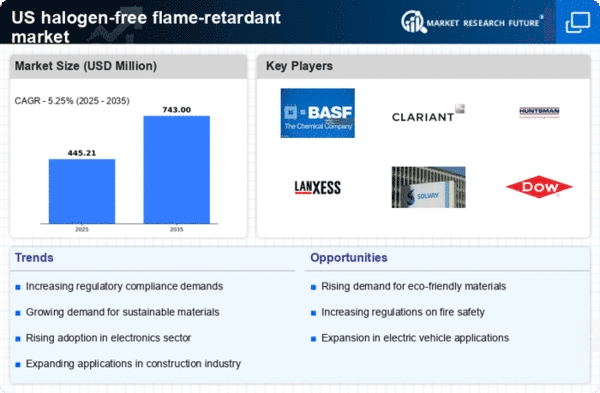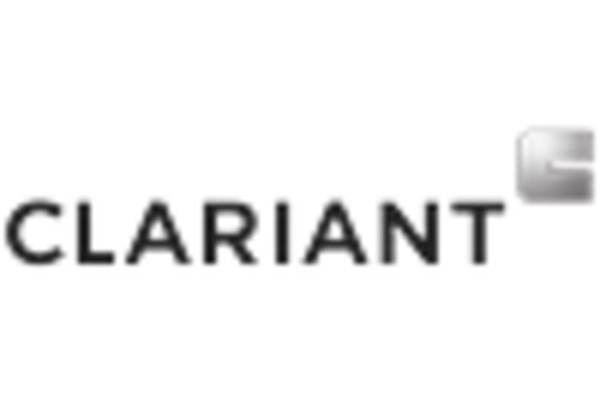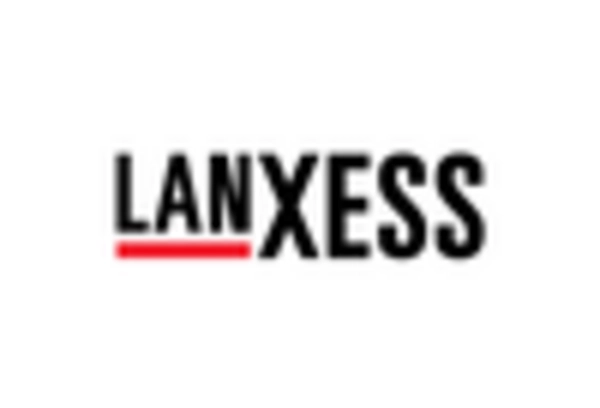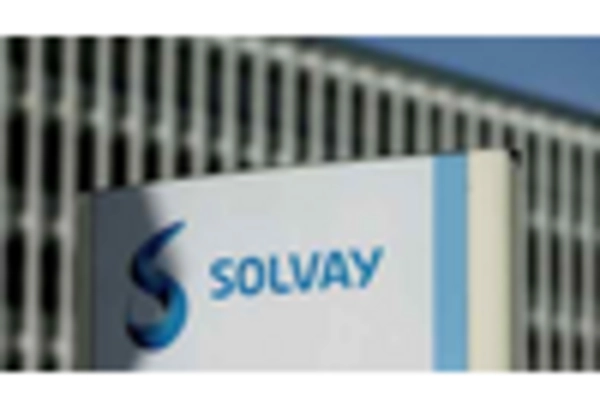The halogen free-flame-retardant market is currently characterized by a dynamic competitive landscape, driven by increasing regulatory pressures and a growing demand for safer materials across various industries. Key players such as BASF SE (DE), Huntsman Corporation (US), and Dow Inc. (US) are strategically positioning themselves through innovation and sustainability initiatives. These companies are focusing on developing advanced formulations that not only meet stringent safety standards but also enhance performance characteristics, thereby shaping the competitive environment towards a more environmentally conscious approach.In terms of business tactics, companies are increasingly localizing manufacturing to reduce lead times and optimize supply chains. The market appears moderately fragmented, with several players vying for market share, yet the collective influence of major companies like Clariant AG (CH) and Albemarle Corporation (US) is significant. Their operational strategies, including partnerships and technological advancements, are likely to enhance their competitive edge and market presence.
In October Huntsman Corporation (US) announced the launch of a new line of halogen free-flame-retardants specifically designed for the electronics industry. This strategic move is anticipated to cater to the rising demand for safer electronic components, reflecting Huntsman's commitment to innovation and market responsiveness. The introduction of this product line could potentially strengthen their position in a rapidly evolving sector.
In September BASF SE (DE) expanded its production capacity for halogen free-flame-retardants in North America. This expansion is indicative of BASF's strategy to meet the increasing demand from the automotive and construction sectors, where safety regulations are becoming more stringent. By enhancing their production capabilities, BASF is likely to improve its market share and operational efficiency.
In August Dow Inc. (US) entered into a strategic partnership with a leading technology firm to develop AI-driven solutions for optimizing flame-retardant formulations. This collaboration suggests a forward-thinking approach, leveraging technology to enhance product performance and sustainability. Such initiatives may position Dow as a leader in innovation within the halogen free-flame-retardant market.
As of November current trends indicate a shift towards digitalization and sustainability, with companies increasingly focusing on integrating advanced technologies into their operations. Strategic alliances are becoming more prevalent, fostering innovation and enhancing competitive differentiation. The market appears to be moving away from price-based competition, emphasizing the importance of technological advancements, supply chain reliability, and sustainable practices. This evolution suggests that companies that prioritize innovation and adaptability will likely thrive in the future.
















